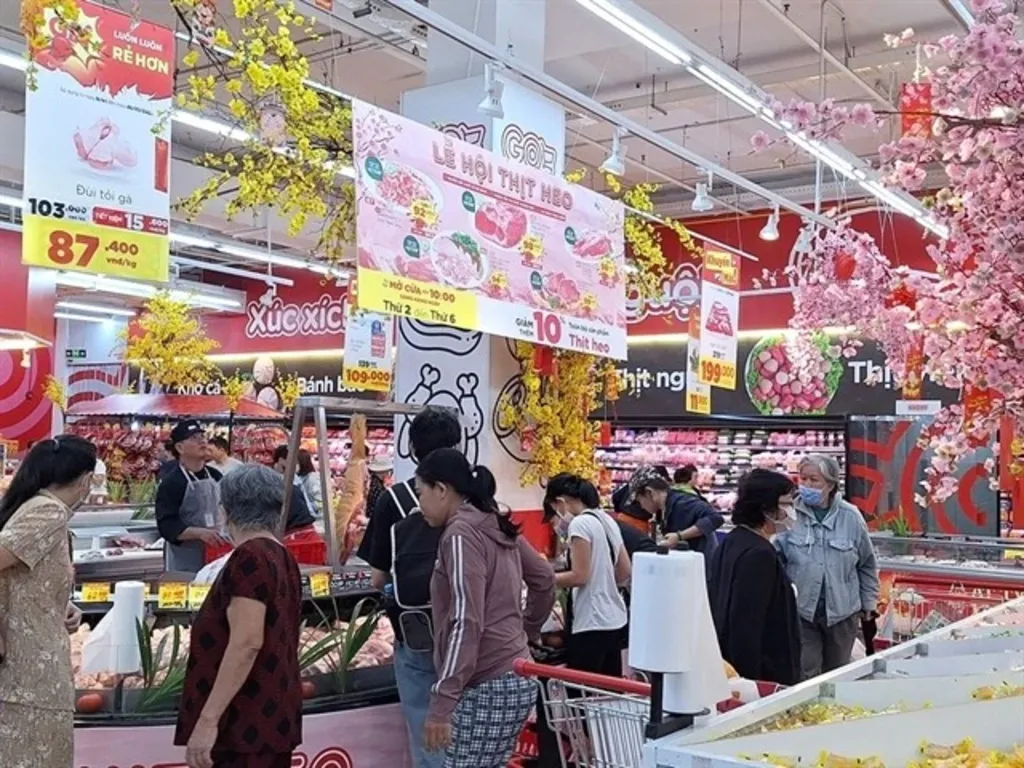 |
| People shop at a Go! supermarket__Photo: VNA |
The Ministry of Industry and Trade (MoIT) has recent urged agencies to stimulate consumer demand and promote domestic goods during the Tet (Lunar New Year) holiday and the first quarter of the year.
Under Directive 01/CT-BCT dated January 16, the MoIT has instructed provincial and municipal Departments of Industry and Trade, units under the ministry, corporations, enterprises, and industry associations to urgently develop production and business plans along with supply chain strategies. The ministry has also asked them to address any unusual market fluctuations.
Local Departments of Industry and Trade are to closely monitor market developments and supply and demand for essential goods – particularly those with high demand or price fluctuations - and proactively implement solutions to avoid product shortages or sudden price hikes during the holiday.
They are also to collaborate with businesses to forecast consumer demand and develop appropriate supply plans, establish essential goods reserves and collaborate with banks to assist businesses in accessing preferential loans – especially small and medium-sized enterprises (SMEs) - to increase their capacities to supply goods.
Large-scale promotional programs should also be held nationwide to encourage the purchase of Vietnamese goods, according to the directive.
Petroleum enterprises are asked to ensure adequate stock and a stable supply while complying with business regulations.
Commercial enterprises are urged to actively participate in market stabilization programs and stimulate consumer demand. They should also support the consumption of safe agricultural products, regional specialties, and One Commune–One Product (OCOP) items.
Trade associations and related industries are expected to closely coordinate with the ministry to review and balance the supply of high-demand items during Tet, such as food, candies, alcoholic beverages, soft drinks, clothing, and footwear.
The associations should help SMEs access preferential financial and credit policies, as well as reduce production costs and expand their distribution networks - especially in rural, mountainous, remote and island areas - to ensure that all people have access to quality goods at reasonable prices.- (VLLF)









